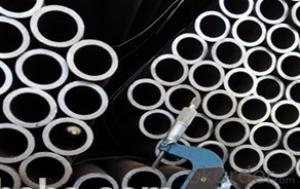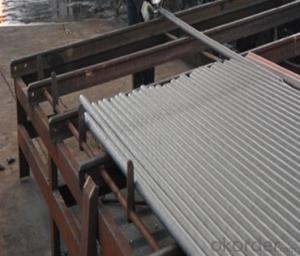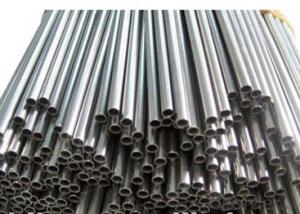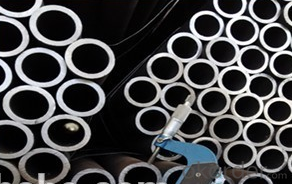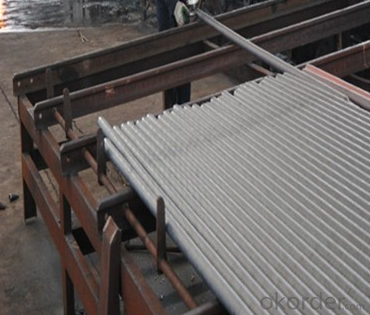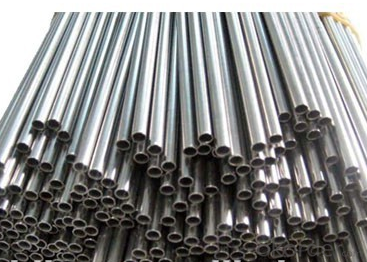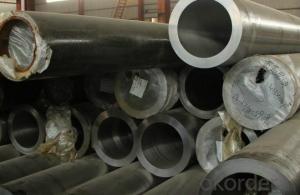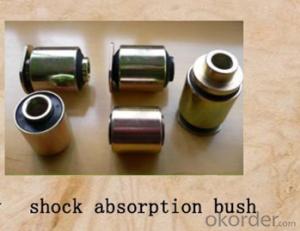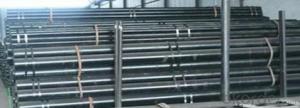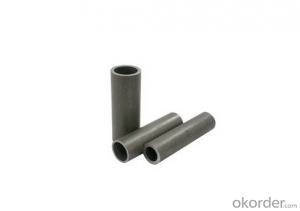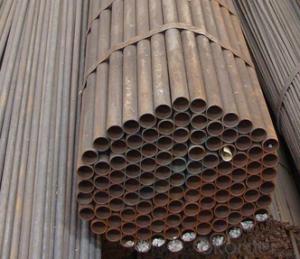1020 Carbon Seamless Steel Pipe 20 CNBM
- Loading Port:
- Qingdao
- Payment Terms:
- TT OR LC
- Min Order Qty:
- 10 pc
- Supply Capability:
- 30 pc/month
OKorder Service Pledge
OKorder Financial Service
You Might Also Like
Quick Details
| Thickness: | 1 - 40 mm | Section Shape: | Round | Outer Diameter: | 21.3 - 609.6 mm |
| Secondary Or Not: | Non-secondary | Application: | Fluid Pipe | ||
| Technique: | Hot Rolled | Certification: | BV | Surface Treatment: | Other |
| Special Pipe: | Thick Wall Pipe | Alloy Or Not: | Non-alloy | Standard: | API 5L,API |
Packaging & Delivery
| Packaging Detail: | Standard seaworthy export packing with steel strip or with plastic clothe, or as requests from the coustomer. |
| Delivery Detail: | 7-25 days after receiveved the deposit |
Specifications
Seamless Steel Pipe
Standard:API ASTM DIN
Size:OD:21.3mm-609.6mm
WT:1mm-40mm
Mechanical properties
standard | grade | Tensile strength(MPA) | yield strength(MPA) |
ASTM A106 | A | ≥330 | ≥205 |
B | ≥415 | ≥240 | |
C | ≥485 | ≥275 |
Chemical ingredients
standard | grade | Chemical ingredients | |||||||||
C | Si | Mn | P | S | Cr | Mo | Cu | Ni | V | ||
ASTM A106 | A | ≤0.25 | ≥0.10 | 0.27~0.93 | ≤0.035 | ≤0.035 | ≤0.40 | ≤0.15 | ≤0.40 | ≤0.40 | ≤0.08 |
B | ≤0.30 | ≥0.10 | 0.29~1.06 | ≤0.035 | ≤0.035 | ≤0.40 | ≤0.15 | ≤0.40 | ≤0.40 | ≤0.08 | |
C | ≤0.35 | ≥0.10 | 0.29~1.06 | ≤0.35 | ≤0.35 | ≤0.40 | ≤0.15 | ≤0.40 | ≤0.40 | ≤0.08 | |
| Company Name | Tianjin Xinlianxin | ||
| Business Type | Manufacturer and Exporter | ||
| Product | steel pipe | ||
| Main Products and Standards | |||
| product name | Specification Range | steel Grade | Executive Standard |
| Structure Pipe | 20mm-820mm 1/2"-32" | 10,20,35,45,16Mn,A53AB | GB/T8162-1999,ASTM A53-98,ASTM500-98,ASTM 500-98,JISG3441-1998,JISG3444-1994 |
| Pipe for Liquid Transportation | 20mm-820mm 1/2"-33" | 10,20,Q345(16Mn),A53AB,A192,SGP | GB/T8163-1999,ASTM A53-98,ASTM A192,JISG3452-1997 |
| Boiler Pipe | 20mm-820mm 1/2"-35" | 20,20G,A179,A106B,A192,ST37.0,ST44.0,ST35.8,ST45.8,Gr320 | GB3087-1999,GB5310-1995,ASTM A106,ASTM A179,ASTM A192,DIN-1629-1984,DIN17175,BS3059.1-1987 |
| 1 | Product | seamless steel pipe | |
| 2 | Standard | U.S.A. | ASTM A53/A106/A178/A179/A192/A210/A213/ A333/A335/A283/A135/A214/A315/A500/A501/A519/A161/A334 API 5L/5CT |
| Japan | JIS G3452/G3454/G3456/G3457/G3458/G3460/3461/3462/3464 | ||
| German | DIN 1626/17175/1629-4/2448/2391/17200 SEW680 | ||
| Britain | BS 1387/1600/1717/1640/3601/3602/3059/1775 | ||
| Russia | GOST 8732/8731/3183 | ||
| China | GB/T8162/T8163 GB5310/6579/9948 | ||
| 3 | Material Grade | U.S.A. | Gr. B/Gr.A/A179/A192/A-1/T11/T12/T22/P1/FP1/T5/4140/4130 |
| Japan | STPG38,STB30,STS38,STB33,STB42,STS49, STBA23,STPA25,STPA23,STBA20 | ||
| German | ST33,ST37,ST35,ST35.8,ST45,ST52,15Mo3, 13CrMo44, 1.0309, 1.0305, 1.0405 | ||
| Britain | Low, Medium, high | ||
| Russia | 10, 20, 35, 45, 20X | ||
| China | 10#, 20#, 16Mn, 20G, 15MoG, 15CrMo, 30CrMo, 42Crmo, 27SiMn, 20CrMo | ||
| 4 | Out Diameter | 21.3mm-609.6mm | |
| 5 | Wall Thickness | 2.31mm-40mm | |
| 6 | Length | As per customers' requirements | |
| 7 | Protection | Plastic caps/ Wooden case | |
| 8 | Surface | Black painting/varnished surface,anti-corrosion oil, galvanized or as per required by customer | |
- Q: What is the standard length of a steel pipe?
- The industry and application dictate the standard length of a steel pipe, which can vary. In general, steel pipes typically range from 18 to 24 feet in length. These lengths find common usage in construction, plumbing, and various industrial applications. It is worth mentioning that custom lengths are also available to accommodate specific project needs.
- Q: Are steel pipes suitable for wastewater treatment facilities?
- Yes, steel pipes are suitable for wastewater treatment facilities. Steel pipes are known for their durability, strength, and resistance to corrosion, making them ideal for handling the corrosive and harsh nature of wastewater. Additionally, steel pipes can withstand high pressure and temperature variations, ensuring the efficient and reliable transportation of wastewater within the facility.
- Q: Can steel pipes be used for gas distribution?
- Yes, steel pipes can be used for gas distribution. Steel pipes are commonly used in gas distribution systems due to their durability, strength, and resistance to corrosion. They can handle high-pressure gas transmission and are suitable for both underground and aboveground installations. However, certain safety regulations and standards must be followed to ensure the proper installation and maintenance of steel pipes for gas distribution.
- Q: What is the minimum wall thickness for steel pipes?
- The minimum wall thickness for steel pipes depends on several factors, including the intended use of the pipe and the specific industry standards and regulations. In general, the minimum wall thickness is determined by considering factors such as the pipe's diameter, the material strength, and the pressure or load it will be subjected to during operation. For example, in the oil and gas industry, the minimum wall thickness for steel pipes is usually specified by industry standards such as API 5L or ASME B31.3. These standards take into account factors such as the pipe's diameter, the material's yield strength, and the maximum pressure it will be exposed to. In other applications, such as structural or mechanical engineering, the minimum wall thickness for steel pipes is determined based on factors such as the pipe's intended load-bearing capacity, the desired safety factor, and any applicable building codes or regulations. It is important to consult the appropriate industry standards, codes, or regulations to determine the specific minimum wall thickness requirements for steel pipes in a given application.
- Q: Stainless steel tube, also known as why tube?
- The longitudinal section can be divided into equal section tube and variable cross section tubeThe variable section tube has a conical tube, a stepped tube and a periodically cross section pipe, etc.
- Q: What materials are used in scaffolding pipes?
- Using 48.3 * 3.6mm steel pipe, the maximum thickness of the steel pipe shall not be less than 3.24mm (there should be no serious corrosion, bending, flattening or crack); the corrosion depth of the old steel pipe shall be in accordance with the construction fastener typeProvisions on the safety technical specification for steel pipe scaffold JGJ130-2011. Take three of the corroded steel tubes, and cut the samples at the most severe parts of the rust. The corrosion depth shall not exceed the prescribed valueUse。 In addition, the approach of the steel pipe should also be sampling retest, qualified before use.
- Q: How are steel pipes tested for quality assurance?
- Steel pipes are tested for quality assurance through various methods including visual inspection, non-destructive testing (such as ultrasonic testing and magnetic particle inspection), mechanical testing (such as tensile strength and hardness testing), and dimensional checks. These tests help ensure that the pipes meet the required specifications, standards, and safety regulations, ensuring their durability, reliability, and performance in various applications.
- Q: How are steel pipes used in the construction of railways and transportation systems?
- Steel pipes are used in the construction of railways and transportation systems primarily for their durability and strength. They are utilized for various purposes such as the fabrication of tracks, bridges, tunnels, and support structures. Steel pipes provide a reliable and long-lasting solution for the transportation industry, ensuring the safety and efficiency of railway systems.
- Q: Are steel pipes suitable for underground cable protection?
- Yes, steel pipes are suitable for underground cable protection. Steel pipes provide excellent mechanical strength and durability, protecting cables from external forces such as ground movement or accidental damage. They also offer resistance to corrosion, making them a reliable choice for long-term cable protection in underground installations.
- Q: Are steel pipes suitable for underground installations?
- Yes, steel pipes are suitable for underground installations. Steel pipes have been widely used for underground applications due to their durability, strength, and resistance to corrosion. They are able to withstand high pressure and extreme temperature variations, making them ideal for transporting various substances such as water, gas, and oil underground. Additionally, steel pipes are highly resistant to environmental factors such as moisture and chemicals, which are commonly found in underground environments. With proper coatings and cathodic protection systems, steel pipes can have an extended lifespan and remain intact even in harsh underground conditions. Therefore, steel pipes are a reliable and suitable choice for underground installations.
Send your message to us
1020 Carbon Seamless Steel Pipe 20 CNBM
- Loading Port:
- Qingdao
- Payment Terms:
- TT OR LC
- Min Order Qty:
- 10 pc
- Supply Capability:
- 30 pc/month
OKorder Service Pledge
OKorder Financial Service
Similar products
Hot products
Hot Searches
Related keywords
